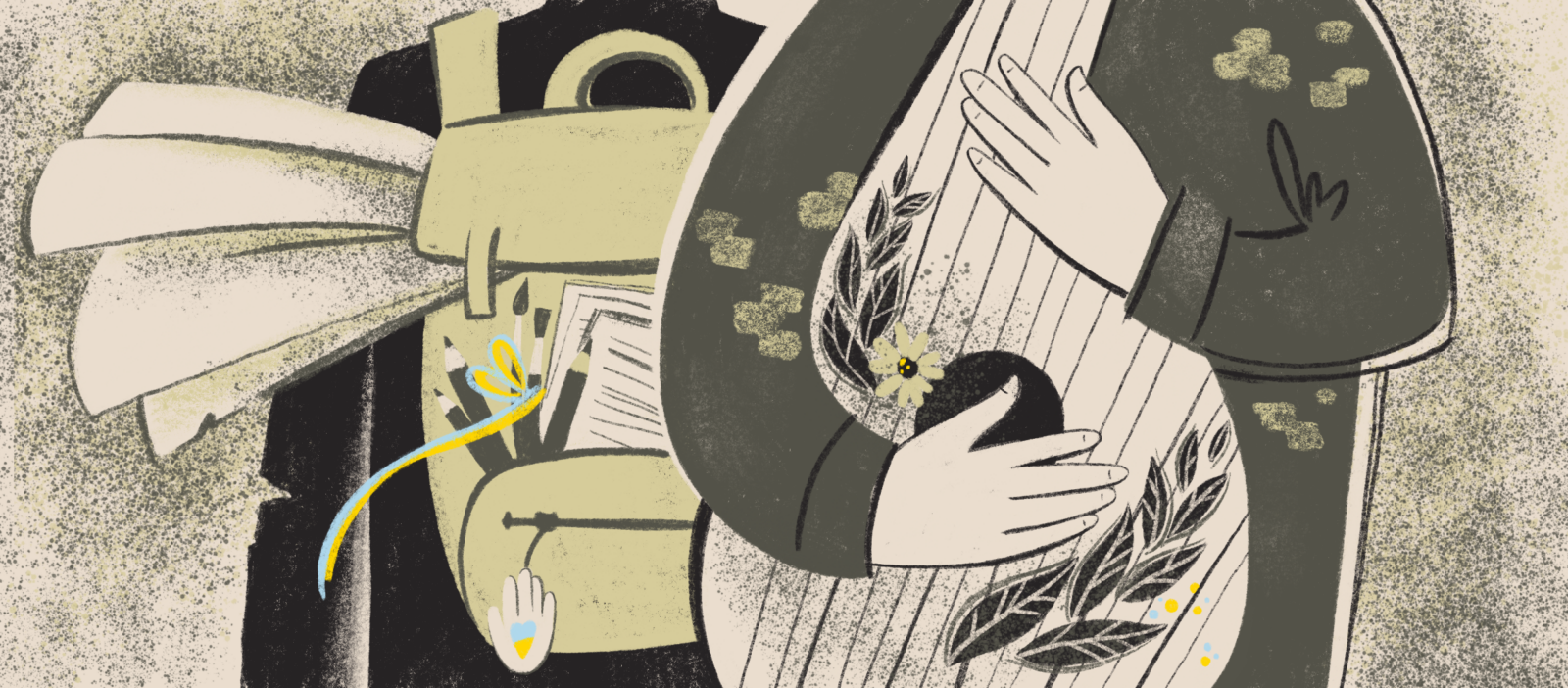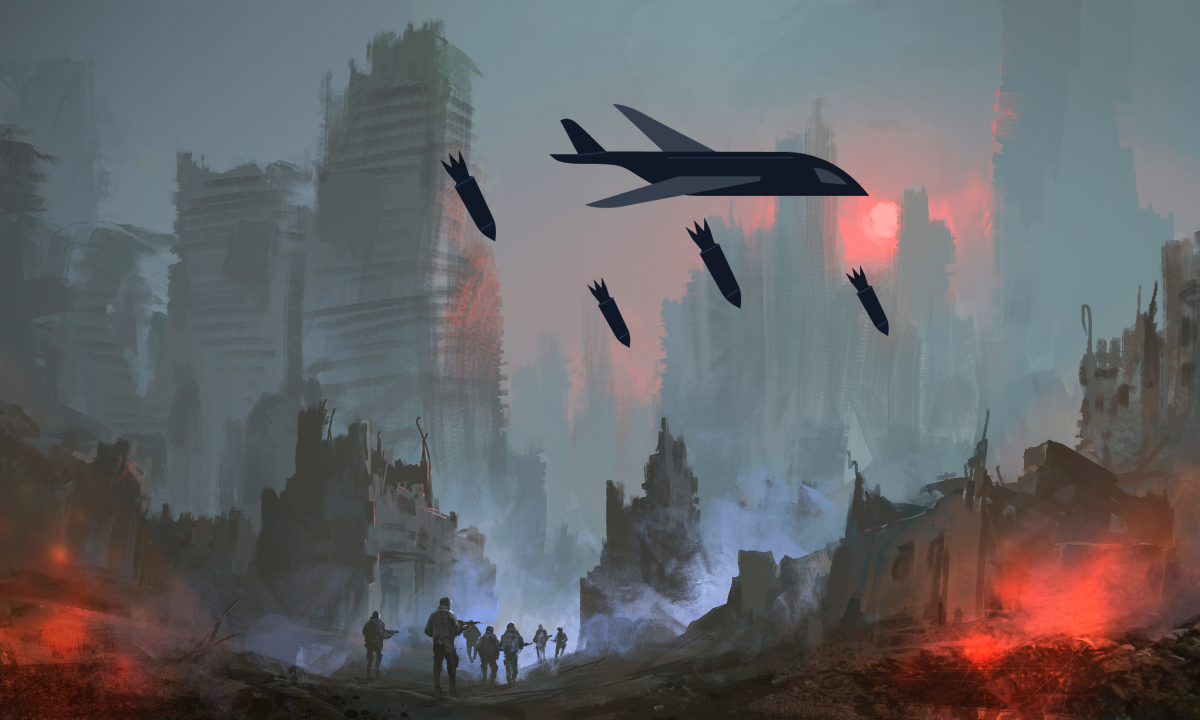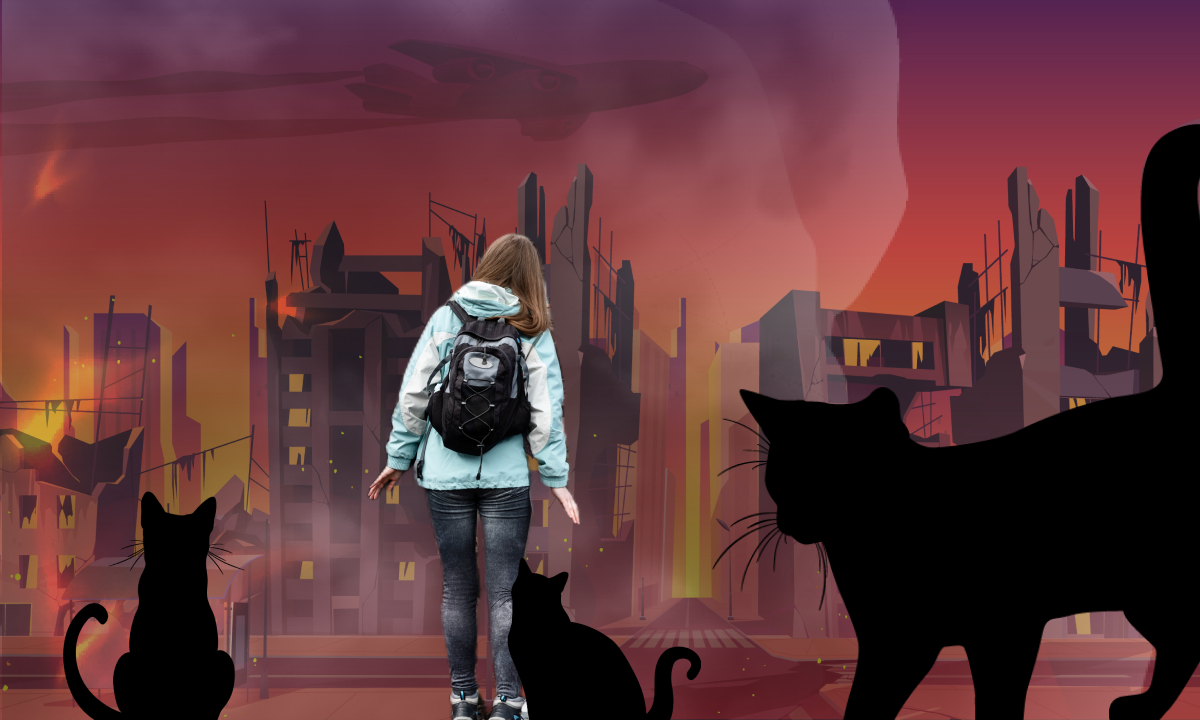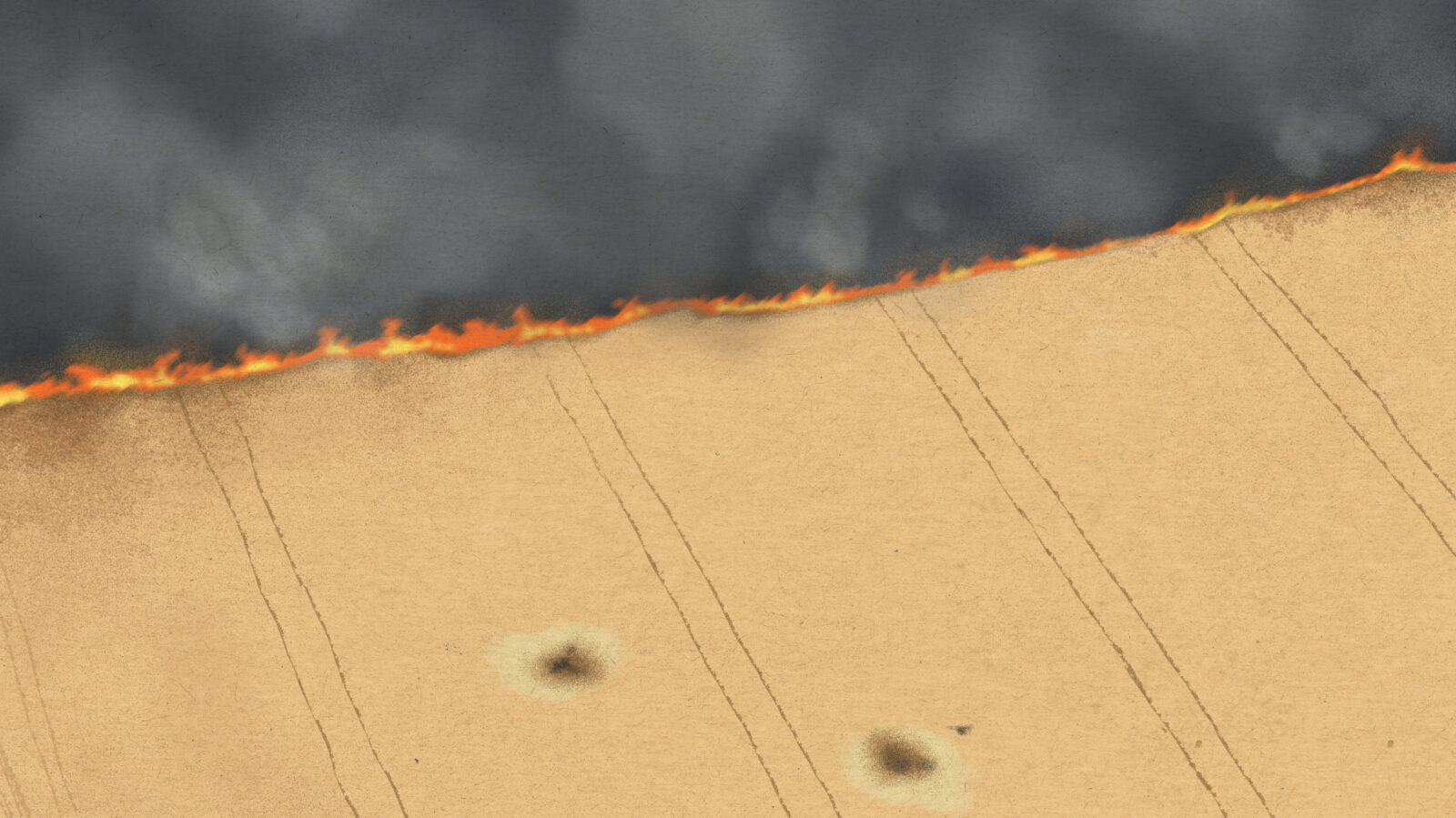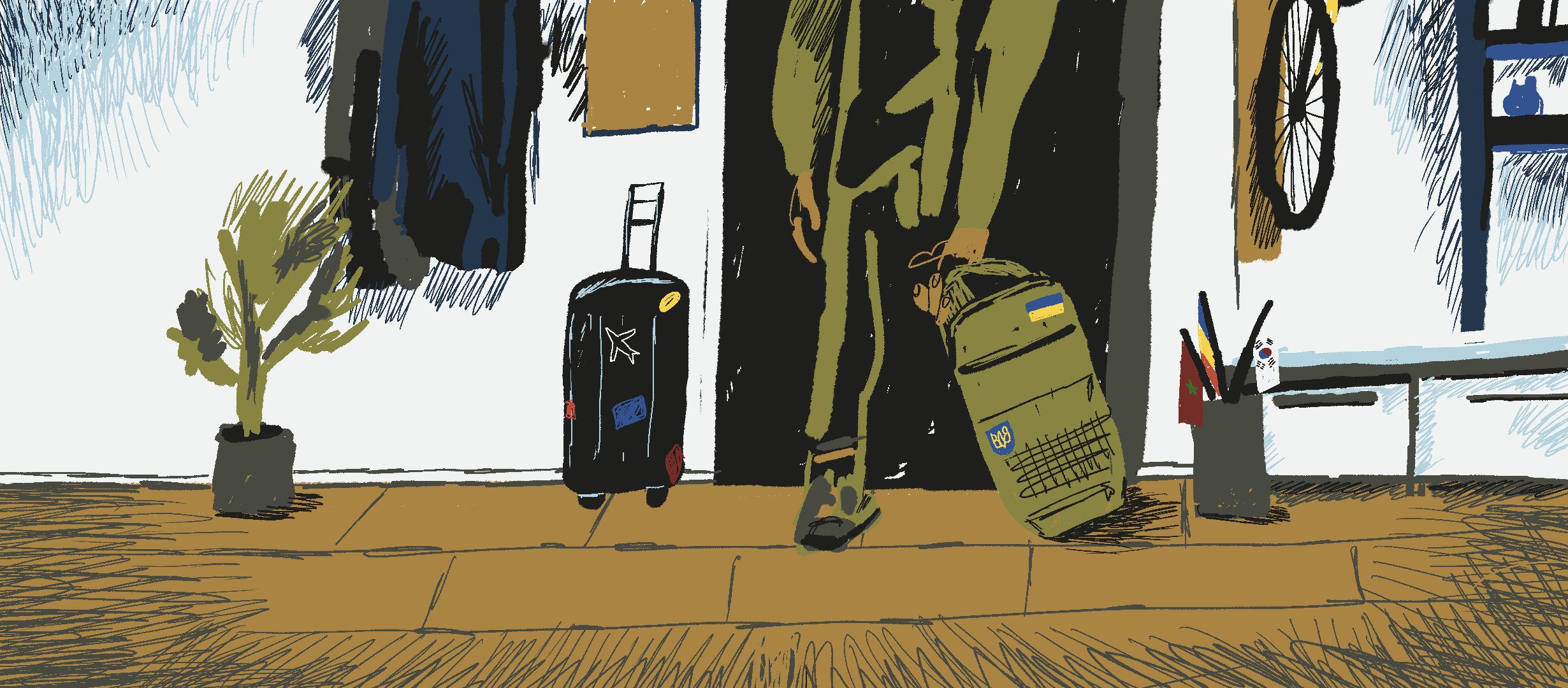Author: Mary Banko
Editor: Mariia Semenchenko
Illustrator: Nadiia Matviychuk
Translator: Oksana Biliavska
Russia’s full-fledged war against Ukraine radically changed the lives of Ukrainian artists and the work of cultural institutions. Some theaters are now shelters for displaced persons or humanitarian centers. Concerts in military units and bomb shelters have become trivial. Writers and musicians defend our country in the ranks of the Ukrainian Armed Forces. Artists on the home front devote a significant part of their time to volunteering.
In May 2022, the Ukrainian Cultural Fund held a survey among Ukrainian artists and cultural figures. The results showed that most representatives of the Ukrainian artistic community continue to engage in professional activities even if they were forced to relocate. Many combine volunteering and other types of assistance to the state in the fight against the Russian aggressor. 54% of the respondents are sure that the current escalation will encourage the emergence of new artists and artistic trends in the post-war period. Almost 77% of the respondents forecast an increase in demand for Ukrainian culture in general. Also, the absolute majority of respondents are convinced that the war makes Ukraine stronger, and the unity of Ukrainian people is the key to its victory.
We have collected five stories: a musician, a poet, a film director, an artist and a theater worker talking about how the Russian invasion changed their lives and work, how they live through the war, and what kind of work they consider meaningful now.
“To tell the truth is the core task now for Ukrainian artists”
Ostap Slyvynsky is a Ukrainian poet, translator, and literary critic, Ukrainian PEN member. With the beginning of the full-scale Russian invasion, he combined work and volunteering. He is the author of A War Vocabulary project, Lviv.
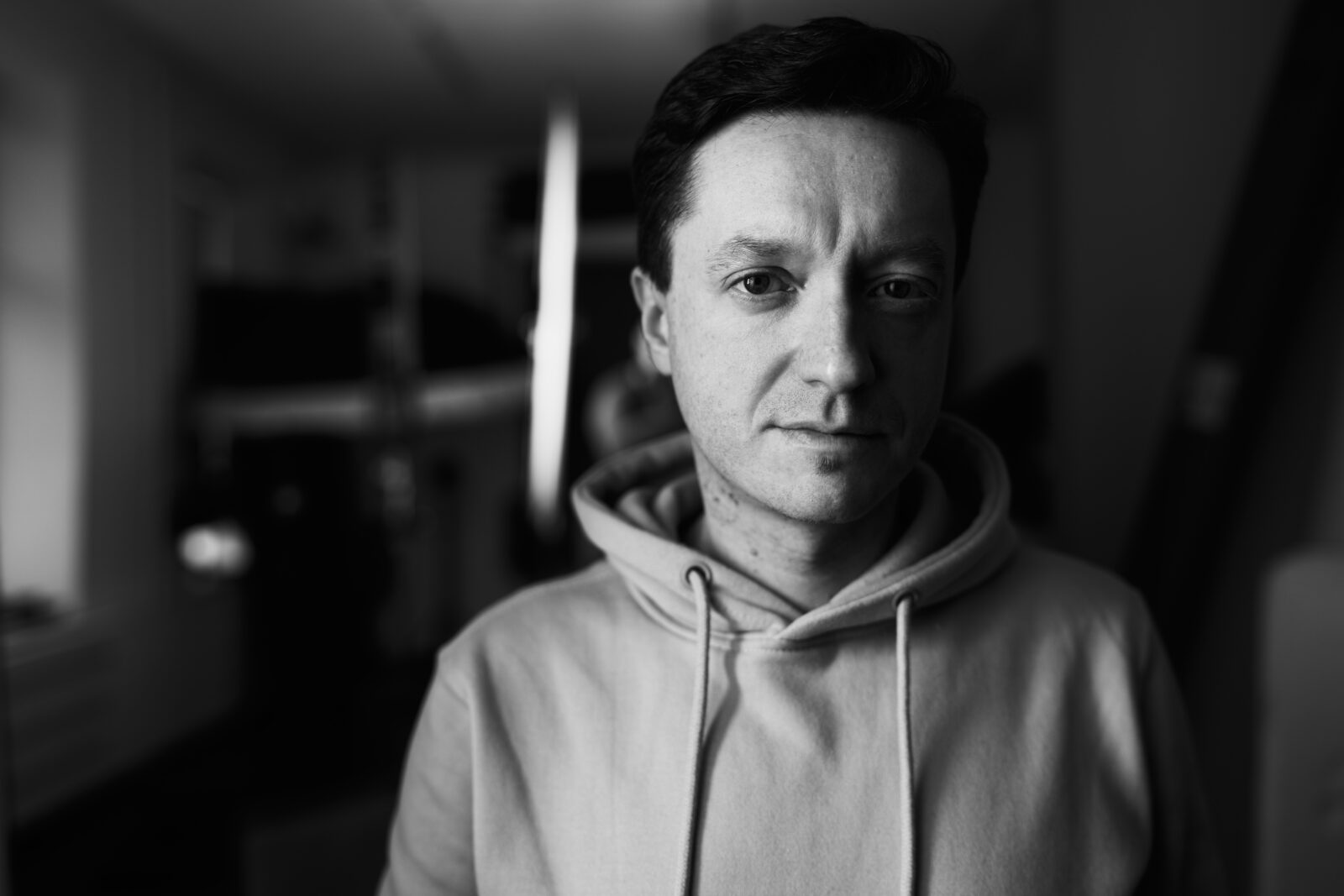
Ostap Slyvynsky lives in Lviv, a city that hosts more than 200,000 people who have arrived there from the more dangerous regions of Ukraine. From the very first days he worked as a volunteer at a railway station and in shelters for displaced persons.
“People torn out of their normal existence looked absolutely confused,” he recalls. So they needed volunteers to feed them, keep them warm, share information, and help to figure out what to do next.
Different arrivals have different coping strategies: some of them close off in their own shell, and some need to be heard. “People brought with them their fears, their confusion, but also their stories. And I happened to be the first who listened. It is a big responsibility to listen to those stories. It will never happen again, those people will never share their new stories for the first time,” says Ostap.
There was no way to record, so Ostap just memorized the stories and then looked for the right form for the material. That’s how he came across the idea of A War Vocabulary, in which each word is a key to understanding the context, and all the stories, long tales and small passages of a few sentences, become equal.
As a philologist, I was interested in seeing how words change their meaning. How words from the past, such as ‘bombing’ or ‘filtration camp,’ became widely used again. They should not be in our daily vocabularies. Unless they could exist as metaphors. It seems to me that we will never use the phrase ‘bomb-rocket’ again in the sense of ‘cool’ like we used to,” he adds.
There are about 70 stories in A War Vocabulary now. Some of them were recorded by Ostap, some were sent by co-authors. They will work on the project till the end of summer, after which A War Vocabulary is planned to be published. Even now, those stories have been translated in various languages, posted by the world media, and read by movie stars. Like the British movie actress Tilda Swinton who read A War Vocabulary at the Deep Water Festival in the United States.
Ostap is the Vice President of PEN Ukraine. Together with his colleagues, he tries to support Ukrainian writers and share truthful information about the events in Ukraine around the globe. PEN Ukraine has started a scholarship for writers, publishes newsletters about the situation in Ukraine, holds the Between Sirens poetry readings, and organizes the Dialogues on War, talks between Ukrainian and global intellectuals, including Nobelists.
Ostap highlights the importance of dialog among Ukrainian artists and the world, but he also mentions how difficult it can be: “If missiles don’t fly over your head, it’s hard to understand those who they are flying over. It’s a trap, an invincible gap. People seem to be touched and sympathetic, and then ask questions that drive you into a dead end: ‘Why don’t you just talk to them, the Russians?’”

He adds that many people in the world do not understand this war because of its archaic nature: “The intellectual community is surprised when we say that Russia and the West cannot share responsibility for this war. There is an aggressor and a victim instead. Ukrainians are fighting for the very possibility to exist. Something from the faraway Middle Ages. It’s hard to admit that we live in a very vulnerable world, we are off guard. It turned out that global security and economic balance can be useless against a stupid archaic force ready to destroy any system.”
Ostap believes that cultural life should not stop even during the war. Although art is not the same weapon as howitzers, and it cannot protect against shelling, it must remind us of values: “Art must exist so that we do not become like those who came here to kill us. When they direct all the power of their propaganda at the world, actually creating a distorted reality, we must get out of this vicious circle by telling the truth. To tell the truth is the core task now for Ukrainian artists.”
“Watching a movie is a kind of normal they have taken from us”
Nadia Parfan is a film director, producer, founder of Takflix online cinema, member of Ukrainian film academy, Kyiv.

The news about the full-scale war caught Nadia in Dahab, Egypt. For several weeks, she hesitated whether to go back to Ukraine on fire, or just stay and volunteer in a safe place. Although she helped people she knew to evacuate from hot spots and arranged charity film screenings, she felt powerless in an observer’s position. In the end, a dream decided everything one night: “I often have dream-movies. That time it was a road movie to a wonder country with a war going on. I woke up and clearly decided to go back. I didn’t just have to watch that movie. I had to make it.”
To film her way back home, Nadia needed her camera; it was delivered to Dahab across several borders. The trip was not easy: to Austria by plane, then to Kyiv accross half of Europe. “I was shooting many videos, volunteered, and met various people on the way. For example, five displaced families lived in my grandma’s house in Ivano-Frankivsk.”
Nadia arrived in Kyiv in the first days after the de-occupation of northern Ukraine “There was still fear in the air. Those were continuous mood swings, from total horror to euphoria, from seeing exhumed bodies in Bucha to meeting friends happy to see me back, on the same day.”
Nadia works on many projects in Ukraine. One of them is a documentary about Ukrainian IT engineers, the other is on how the Zhovten cinema in Kyiv survives during the war.
The team of Taxflix online cinema, founded by Nadia, also works, although the website developer has been conscripted, the web designer survived occupation, and the designer was evacuated to Germany.
In the first months after the invasion, Taxflix held charity screenings in different countries: “The screening of Mariupolis in the Republic of Ghana was the most emotional. It was the time when Mariupol was being destroyed, but the global information space was silent. So we decided to arrange screenings of films about the city, works by authors from Mariupol, to draw attention to what was going on in some way.” The director of Mariupolis, Mantas Kvedaravičius, died while working on the second part of the film in the occupied Mariupol.

“I don’t know how to fight, I cannot rescue people with my own hands, but at least I can find money to give it to someone who knows what to do.” Taxflix sends 10% of each ticket sold to the Come Back Alive Foundation. It also implements targeted assistance, for example, 100% of the proceeds from Not Everything Will be Fine are given to the battalion where Helena Maksyom, one of the film’s directors, serves.
Nadia also thinks a lot about messages she can give to the global community as a director and producer. “There’s now a civilizational gap between us and foreigners. We have experienced so much and realized that we have 30 million insights. But it’s difficult to talk about that while in Ukraine. I understand that we have to go abroad from time to time, organize offline events. We need to pack our experience into deep and subtle messages to be understood. We cannot just show piles of dead bodies, we need to invent more complex forms to be heard,” she says.
And she adds: “We must talk to the world but we also have to give access to high-quality films in Ukraine. People need films. Watching a movie is a kind of normal they have taken from us. And a good movie can heal souls.”
“I don’t want to aestheticize war, but I’m interested in working with beautiful and dramatic things”
Lucy Ivanova is a Ukrainian artist, now a participant of an art residence in Vienna.
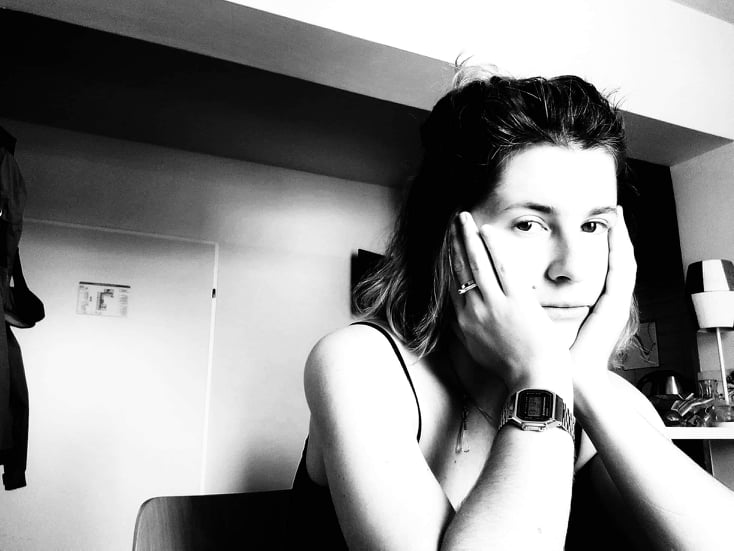
On February 23, Lucy Ivanova came to Dnipro from Kyiv: her personal exhibition was supposed to open there in two days. On the 24th, the Russian invasion began, so Lucy stayed in the city.
She recalls: “At first I didn’t think I could draw. I didn’t think I’d survive. I forgot who and what I was. It all seemed insignificant. Only in two weeks did I feel the desire to capture reality in some way.
A taped window was the first thing she drew. It contrasted with the orchids blooming on the windowsill. The painting is called A window with a suspicious view.
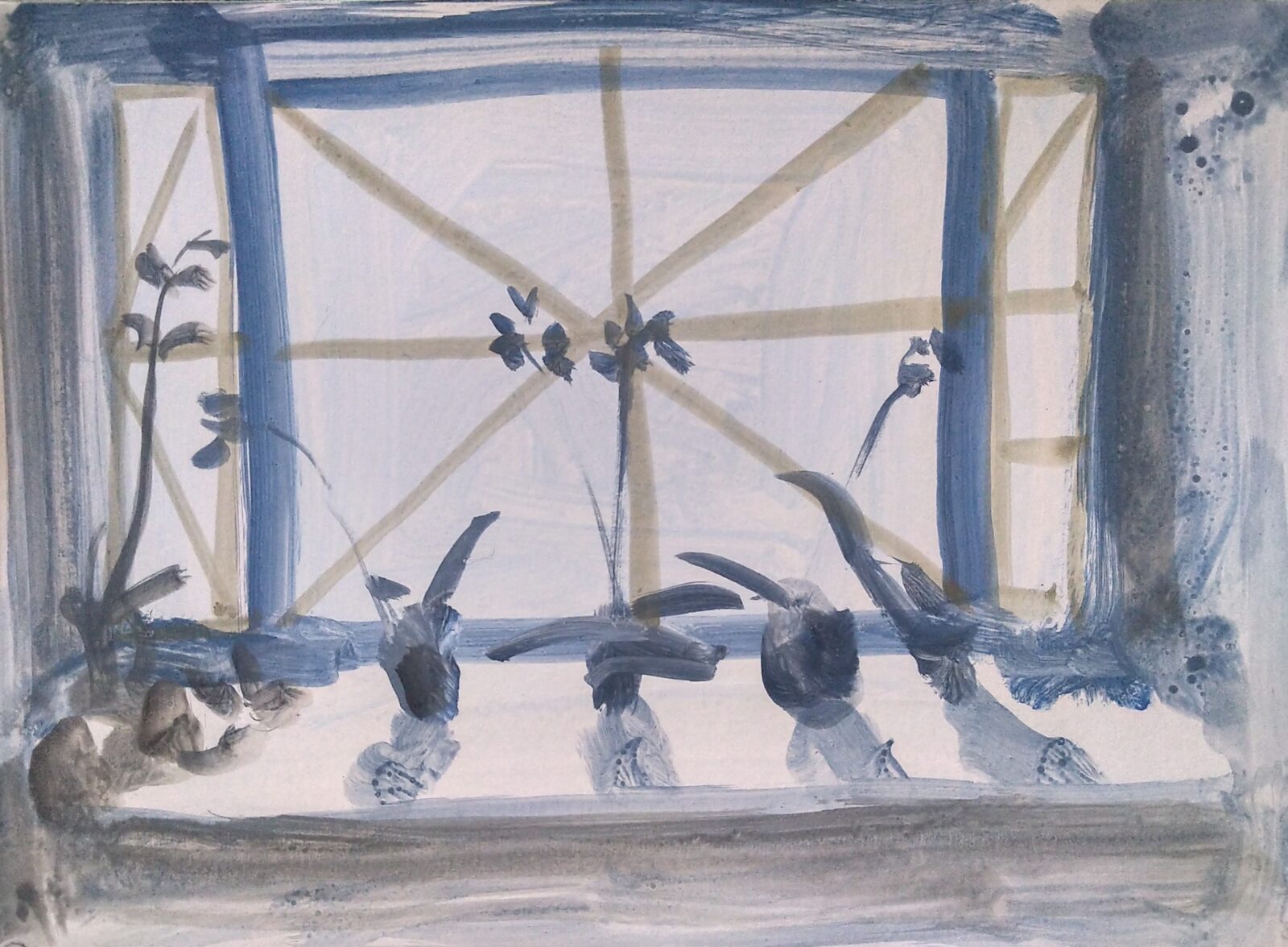
In total, the artist has created a whole series of works: A suspicious man comes closer to me; Landscape with a suspicious figure in the offing.
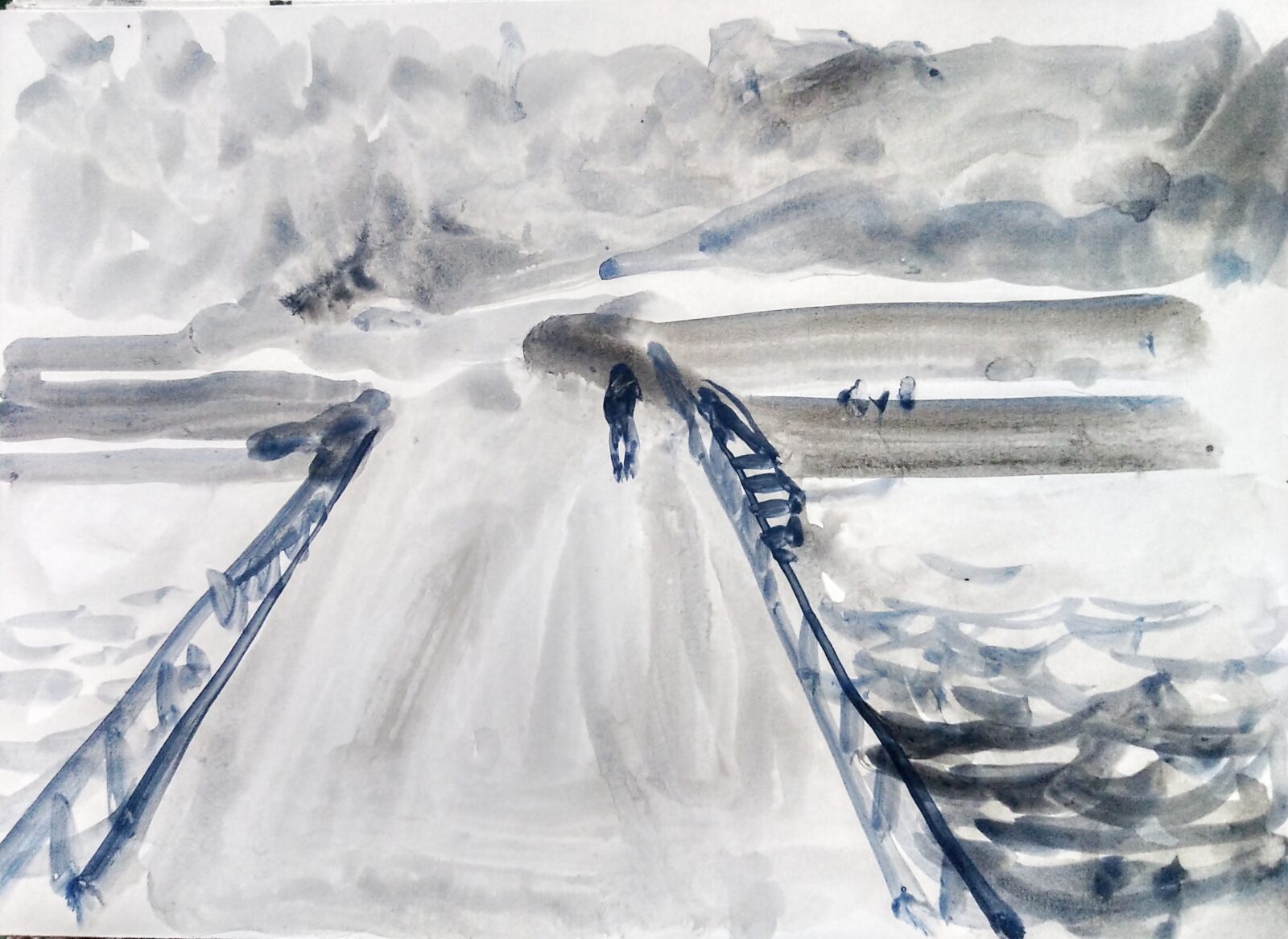
Lucy didn’t take photos outside because people could think she was a saboteur, and she was also afraid to photograph something forbidden. Instead, she painted the city from her memory, especially things that were beautiful and “suspicious” at the same time: “The city was very tense. People suspected each other of something as if they were on the lookout. You just walk in a seemingly peaceful city, you see ducks floating, and the air alarm starts right away, and the echo carries it over Dnipro, it was so surreal.”
A separate series of paintings is devoted to air alarms: “Every time an explosion was heard, our neighbors fell to the floor. I wanted to capture that feeling of ‘squeezing’ when you want to get squeezed up against the wall, to become a part of it. So, I was laying there and looking up at the large mirror in the wardrobe door. When an ‘arrival’ occurred not far from us, I heard explosions and thought: if a missile hit our house, I would have died, I would have been wounded by a fragment of that mirror.”
Several times Lucy went to weave camouflage nets with volunteers: “It was unusually beautiful. Either painting or landart. I really enjoyed doing things together with others. I had that feeling that I could not only be in continuous shock but I can also act in some way.”
Lucy did not want to leave Dnipro for a long time. It seemed to her that if she left, she would “betray” the city. But The Naked Room gallery, which collaborated with the artist, helped her to get a scholarship from a Vienna residence, so Lucy used that opportunity. Now she is in Austria, before that in April she managed to go to La Biennale di Venezia.
She says:
Wherever I am, the war comes with me. In Venice, it was very difficult for me to accept the beauty around. I enjoyed it, but at the same time I was offended: it’s so beautiful around, and the war is going on, on the same continent.”
So Lucy started to create the series of paintings with a plot partially revealed through the title which is read differently by those who have experienced the war and those who have not: “For example, I painted black bags with leaves. For all people, they are just bags, and Ukrainians see bags for dead bodies. And they see drones in seagulls.”
In Vienna, Lucy lives opposite an amusement park. When the rides buzz and people scream, Lucy thinks that’s another air alert, but then she remembers that there’s no war in Vienna.
In Austria, Lucy started to work with oil painting again: “The idea of those paintings came to me when my military friend sent me photos of people and animals taken through a thermal imager. He also wrote that he sometimes dreamed in those colors. I remembered that so much that I decided to work in that area.”
Lucy has not yet had an exhibition in Vienna, only her curator and friends saw her paintings. She notes that people in Europe are embarrassed when they hear about the war in Ukraine: “They seem to mean good but they are trying to avoid those talks. Maybe they are afraid of hurting me. Or maybe they just don’t know what to do with that information.”
So she tries to live and keep on, reflect, and find new forms of expression: “I don’t want to aestheticize war, but I’m interested in working with beautiful and dramatic things. I can’t openly show any tragedy. In my paintings, war is a situation in which people find themselves. But their emotional life is going on despite the war. At least the illusion of life.”
“During the war, the theater becomes an artistic shelter”
Victoriia Soloviuk is a theater critic, journalist, poetess, and the PR manager of Lesia Ukrainka Drama Theater, Lviv.
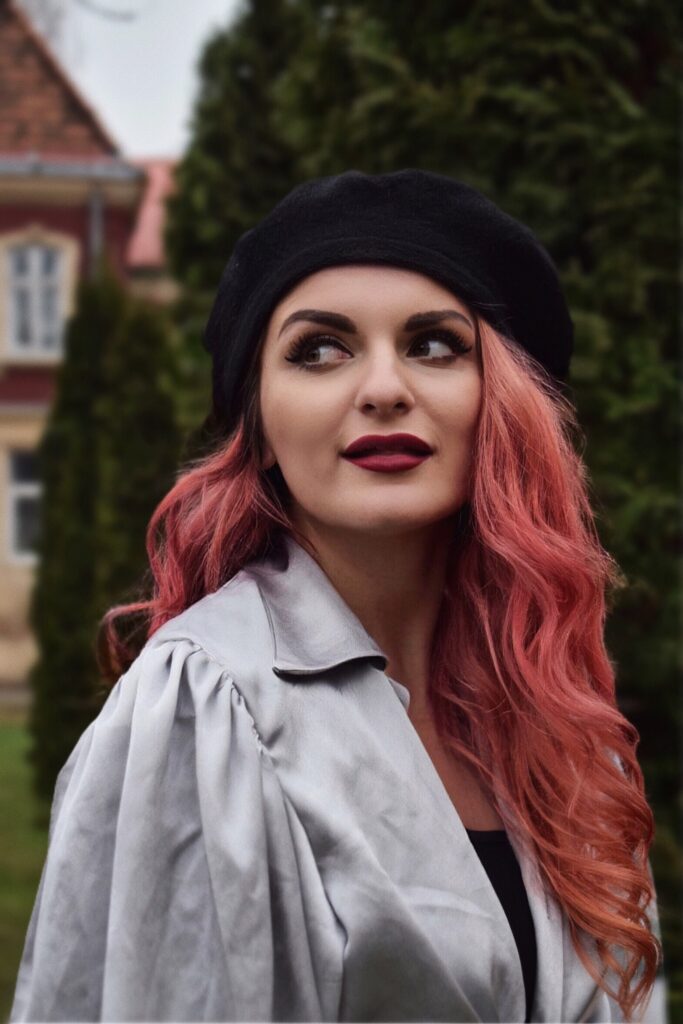
Lesia Ukrainka Drama Theater in Lviv is a modern theater which experiments a lot and is not afraid of awkward projects. The theater team has worked with the topic of war in Ukraine for five years (Timetravellers; Heroes of Chaos; Galdamash; The War that Changed Rondo, and other performances).
Every year, the team chooses a slogan which becomes a kind of marker and announces the season’s projects. Last summer, the theater decided that the season’s slogan should be “A season without fear.” Back then it was about the boldness of the topics raised on the stage. For example, in September 2021, there was a play 146 stars visible to the naked eye talking about the life of LGBT people in Lviv. With the outbreak of the full-scale war, that slogan took on a completely new meaning.

Right after the Russian invasion the theater completely reformatted its work: no plays or rehearsals during the first months, but the team launched eight volunteer projects in different areas. The exhibition center and theater school premises were turned into a shelter for internally displaced persons: 400-500 people went through it. People could stay there for up to five days. The theater team not only provided a temporary shelter, but also did curatorial work and helped people to make further plans.
Another room was used as a collection point for humanitarian aid. Victoriia Soloviuk says: “The small theater stage has turned into a huge pile of clothes. To streamline this, we invited volunteers and theatergoers. Later, we began to send that humanitarian aid to other cities: Kharkiv, Mykolayiv, Zaporizhzhia, Chernihiv, and others.”
Also, the theater team cooked hot meals at the Lviv Railway Station for two months. Although previously only one seamstress worked in the theater, a whole workshop appeared: balaclavas, buffs and ribbons for the military were sewn there. Also, the Lesia Ukrainka Theater in Lviv used its international contacts to obtain necessary medications.
“I never thought that our employees would ever know about military first-aid kits this much. Many of them have taken pre-medical care classes. Some of them tried to shoot for the first time in their lives, although they used to be pacifists,” says Victoriia.
After two months of those routines, the theater is gradually returning to performances. Imaginary Routes in Lviv was their first play for 10 viewers. Then they moved on to other projects.
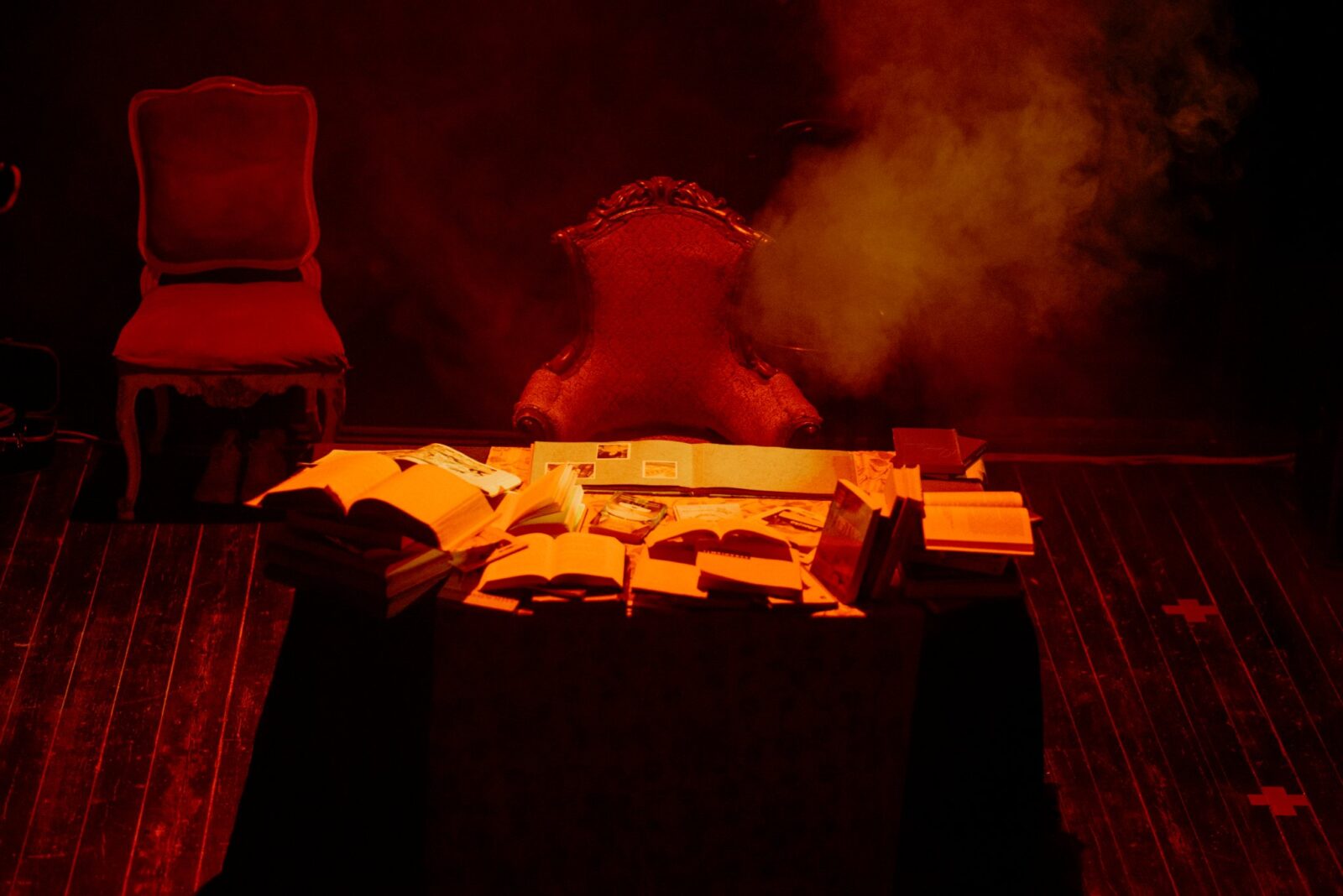
Victoriia says that they had to revise the schedule and repertoire: “Earlier, we had plays for 300 viewers, now they are 70 max. That’s exactly how many people can fit in our shelter. The opening hours have also changed: both the actors and the viewers must be home before the curfew begins. They also had to double-check the repertoire to avoid triggering things.
The theater decided to support artists from different cities, so they launched an open call for internally displaced persons offering to have a performance on the theater’s stage. The first such project was How I met the war and almost killed Putin by Artem Vusyk, a director from Kharkiv.
Imperium delenda est (The Empire Must Fall) is another premiere. It is a performance with current war songs, modern poetry, and personal stories of actresses.
“75% of our theater are people who have moved to Lviv from other places. Every time they experience an air alarm in other Ukrainian cities as a personal one. Everyone has relatives in Kherson, Kyiv, Donetsk, Luhansk. That is the geography of feelings,” adds Victoriia.
Among other artistic volunteer projects of the Lesia Ukrainka Theater in Lviv, they have charity theater training and photo session days when the team raises money for certain requests from the army: gas for volunteering needs and military ammunition.
Radio Alarms are Instagram broadcasts from the theater during air alarms. This is their way to be in touch with the audience and support people.
Victoriia says that the team always knew that the theater has a loyal community, but they had never been this close before. “During the war, the theater has become an artistic shelter. Literally and metaphorically. Theater is not only about art but also about culture. The theater itself becomes a social support. This is a very real reinforcement of the idea that a theater cannot exist without an audience, and an audience cannot exist without a theater. Only earlier there was a certain border between the stage and the stalls, but now it is a completely different interaction,” Victoria Soloviuk sums up.
“Instead of wedding wreaths, we decorated helmets with flowers and gave them to the newlyweds”
Таras Коmpanichenkо is a kobzar, bandurist, a lira player, the frontman of Chorea Kozacky band, a soldier of the 241st Territorial Defense Brigade.
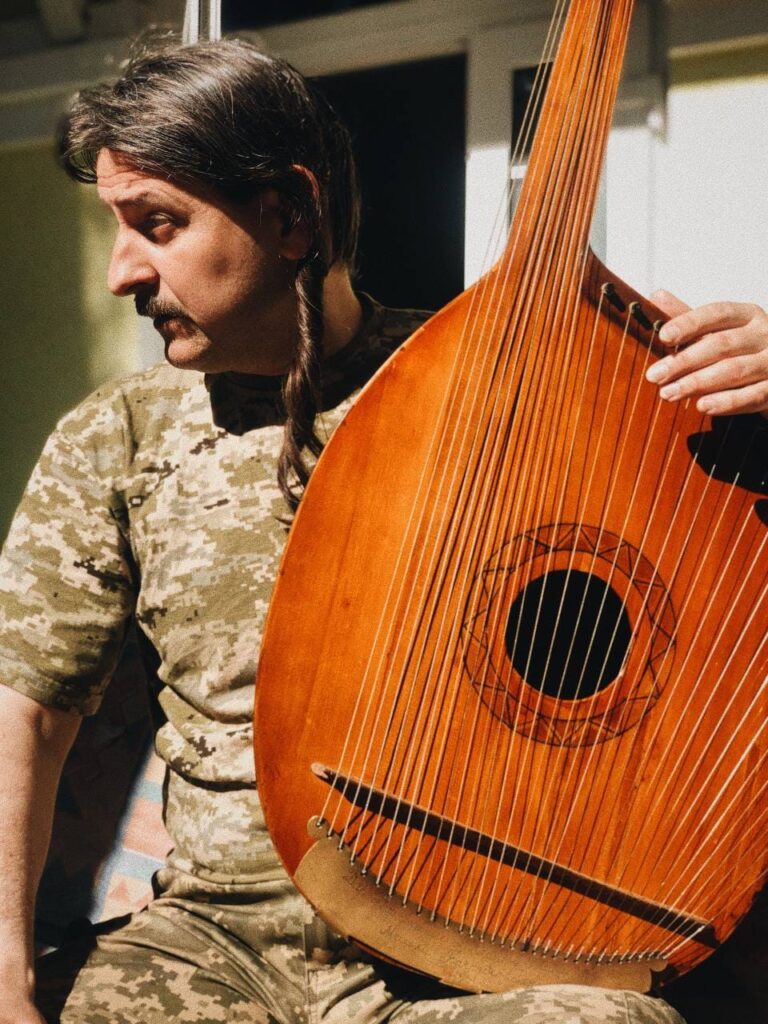
On the first day of the full-scale Russian invasion, Taras tried to join the territorial defense forces. He was rejected several times: “You are an artist. A man of culture. You should inspire, not fight.”
Taras never lost hope to defend his motherland, and in the meantime he helped people he knew to evacuate and set up a cellar shelter at home, the explosions were somewhere nearby. In a few days, he was called and invited to join a territorial defense battalion. He quickly packed, took one bandura and drove to the unit. Here’s how he recalls it: “In the basement where we arrived, they were just holding classes on tactical medicine. As soon as they finished, they asked me to play. I’d just written my new Bayraktars and Javelins song then. People liked it.”
On the following day, Taras received weapons and was enrolled in the battalion’s department of moral and psychological support. His task was to go to the location of soldiers, play music, and speak, and support them that way.
“It was not just about psychological relaxation during the war. I wanted to expand the fighters’ consciousness, help them find their identities and understand our own culture. I wanted them to feel that whole generations of soldiers are behind their backs, and those soldiers were fighting for our freedom 200 or 400 years ago,” he says.
On March 9, Taras took the oath. Now he combines creativity with routine mandatory tasks in the army: unloading ammunition and water, looking for bulletproof vests, sapper shovels and other equipment, undergoing field and fire training, learning how to set mines and shoot various types of weapons. Sometimes he gives charity concerts to raise money—for example, they collect donations to buy a car for their unit.
Once there was training at the training ground. The guys were trained before being sent to the front line. After that, they sat down to clean their weapons and asked me to play for them. They told me later that they had never been as happy to clean guns as when someone nearby was singing and supporting them,” says the artist.
Taras sang a lot at oath ceremonies in various parts of the city, for various personnel, sometimes for three people, sometimes for hundreds. There were many weddings in military units: “I came, sang songs wishing long years and lyrical songs about happy love. Instead of wedding wreaths, we decorated our helmets with flowers and camouflage nets and gave them to the newlyweds,” Taras recalls.
He also adds that later he played at funerals: “In the most terrible moments, in total silence, I tried to fill the space with appropriate music, singing about the victory of spirit and how soldiers go to eternity, to at least support their loved ones in this way.”
The lyrics written dozens or even hundreds of years ago describe these very moments we are living through now. Taras shares: “Here are some lyrics from the 18th century: ‘The famous Zaporizhzhia warrior, ready to defend his land every minute. In the first wave that comes along, they will stand against evil, so as not to see anyone alive in captivity.’ That’s how all volunteers felt, they are people ready to sacrifice themselves to protect others, to protect the Ukrainian people. I also often sang The Virgin, an amulet song. It was sung during the Battle of Grunwald in 1410, and after that Ukrainian chivalry used it as an anthem.”
He adds: “When there were heavy battles around Kyiv, we often went to bomb shelters. As soon as we were in the cramped, crowded space, someone would say: ‘Don’t waste time, play something.’ And I did. For example, ‘Ukraine, you are my prayer, you are my age-old despair… A fierce battle thunders over the world. For your life, your rights.’ And everyone in the shelter sang that song along with me.”

The project is produced with the support of Lviv Media Forum and EU-funded programme House of Europe.

